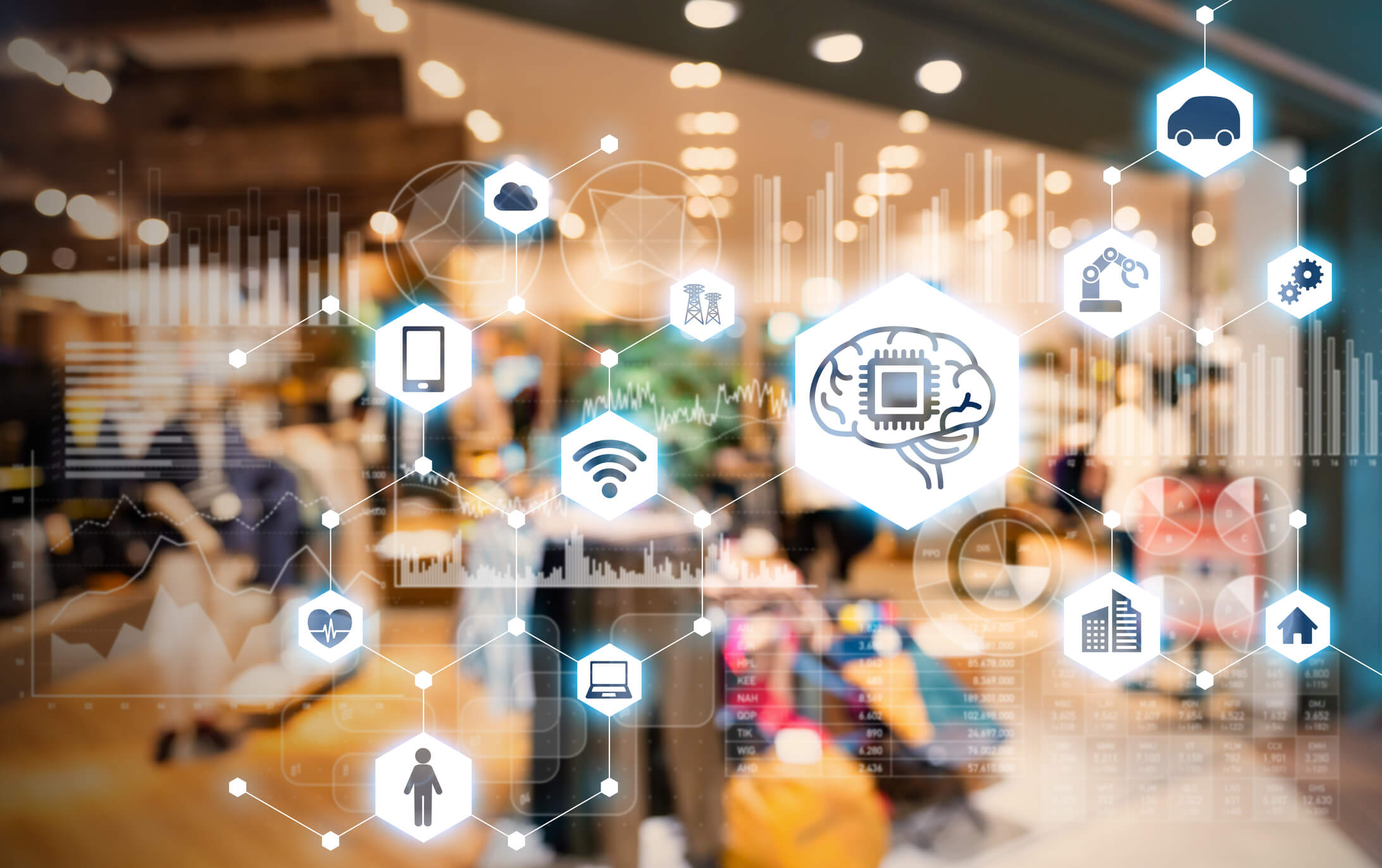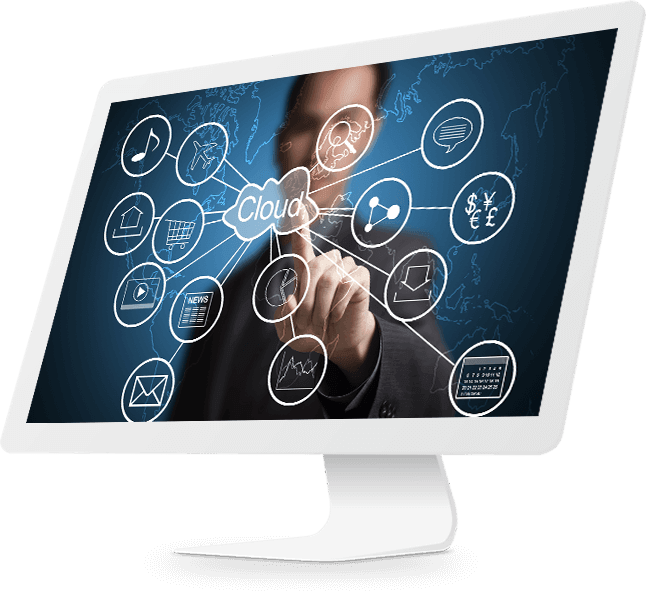
What Cloud Computing Can Do For Retail Enterprises
Cloud Computing has been around for a while now, and more and more businesses are starting to adopt it as their go-to mode of operation. So what is Cloud Computing? Essentially, it is a way to use technology to make your business run smoother and more efficiently. And for retail enterprises, that means increased profits and happier customers. Keep reading to find out how Cloud Computing can help take your retail business to the next level.
Cloud computing has revolutionized the way businesses operate and has had a profound impact on the retail sector. By moving to the cloud, retailers can take advantage of a number of benefits that can help them boost their bottom line.
Some of the most significant benefits of cloud computing for retailers include:
- Increased agility and scalability: One of the biggest advantages of cloud computing is its ability to scale quickly and easily in response to changing demand. This is critical for retailers who need to be able to rapidly adjust their operations in order to respond to changes in the market or seasonality.
- Improved customer experience: Another key benefit of cloud computing is its ability to improve the customer experience. By leveraging cloud-based technologies, retailers can offer their customers a more personalized and interactive shopping experience.
- Reduced costs: Perhaps the most important benefit of cloud computing for retailers is its potential to reduce costs significantly. By moving to the cloud, retailers can save on upfront capital expenses, as well as on ongoing operational costs.
Cloud computing is transforming the retail sector and helping businesses to compete more effectively in today’s marketplace. If you’re looking to boost your bottom line, moving to the cloud is definitely worth considering.
The Application of Cloud Computing in the Retail Industry
Cloud computing has revolutionized the retail industry by providing a new way to manage inventory, customer data, and transactions. Retailers can now use cloud-based applications to track customer behavior, manage stock levels, and process transactions. This has resulted in a more efficient and effective retail industry that is better able to meet the needs of customers.
There are many different types of cloud-based applications that retailers can use to improve their business. Some of the most popular applications include:
- Inventory management: Cloud-based inventory management systems can help retailers keep track of their stock levels in real-time. This information can be used to make decisions about what products to order and how much inventory to keep on hand.
- Customer data: Cloud-based customer data applications can help retailers track customer behavior and preferences. This information can be used to create targeted marketing campaigns and improve customer service.
- Transaction processing: Cloud-based transaction processing applications can help retailers process orders more quickly and efficiently. This can lead to shorter lines at checkout and faster order fulfillment.
The benefits of using cloud computing in the retail industry are clear. By using these applications, retailers can improve their efficiency, save money, and provide a better experience for their customers.
Service-Disabled Veteran-Owned Small Business (SDVOSB)
Small Disadvantaged Business (SDB)
Small Disadvantaged Business leads to enhanced innovation and creativity, as these businesses often offer unique perspectives and solutions shaped by their diverse backgrounds. Moreover, partnering with Small Disadvantaged Business can provide access to specialized skills and capabilities that might otherwise be overlooked, contributing to improved competitiveness and efficiency.

Transforming for Innovation, Sustainability and Security
How Cloud Computing is Used in the Retail Industry
The retail industry is one of the most competitive industries in the world. In order to stay ahead of the competition, retailers must constantly innovate and adopt new technologies that can give them a competitive edge. Cloud computing has emerged as a game-changing technology that is transforming the retail landscape.
Cloud computing has already had a profound impact on the retail industry. Retailers are using cloud-based solutions to power their e-commerce platforms, manage inventory more efficiently, engage with customers more effectively, and much more. Let’s take a closer look at some of the ways cloud computing is being used in the retail industry.
- E-commerce platforms: A large number of retailers have moved their e-commerce platforms to the cloud in order to take advantage of the scalability, flexibility, and cost-effectiveness that the cloud offers. Cloud-based e-commerce platforms can be quickly scaled up or down to meet changing demand, and they don’t require a large upfront investment. In addition, many cloud-based e-commerce platforms offer built-in features such as analytics and personalization that can help retailers increase sales and conversion rates.
- Inventory management: Retailers use inventory management systems to track inventory levels, monitor stock movement, and reorder products when necessary. Cloud-based inventory management systems offer real-time visibility into inventory levels and stock movements, which can help retailers avoid out-of-stocks and overstocks. In addition, cloud-based inventory management systems can be integrated with other cloud-based business applications, such as e-commerce platforms and accounting systems, to provide a complete picture of the business.
- Customer engagement: Retailers are using cloud-based solutions to engage with customers more effectively. Cloud-based customer relationship management (CRM) systems help retailers manage customer data, track customer interactions, and provide personalized customer service. In addition, retailers are using cloud-based marketing automation platforms to deliver targeted marketing messages to customers through email, social media, and other channels.
These are just a few of the ways that cloud computing is being used in the retail industry. As the technology continues to evolve, we can expect to see even more innovative applications of the cloud in retail.
Transforming for Innovation and Sustainability securing future competitive advantage
Benefits of Using Cloud Technologies in the Retail Sector
Here are some of the ways in which the retail industry benefits from cloud computing and technologies:
Improved Channel Operations
One of the most important operations in the retail industry is channel management. In a nutshell, channel management includes all activities related to managing relationships with retailers and other resellers. This can involve tasks such as developing marketing plans and programs, negotiating contracts, setting prices, and managing inventory levels.
The goal of any good channel management strategy is to help manufacturers increase sales and market share while simultaneously reducing costs. Traditionally, this has been a complex and time-consuming process that requires significant resources.
However, cloud computing is beginning to change all that. By leveraging the power of the cloud, retailers can streamline their channel management operations and achieve greater efficiencies. Here are just a few ways that cloud computing is improving channel management in the retail industry:
- Increased flexibility and scalability
One of the biggest benefits of cloud computing is that it allows businesses to scale up or down as needed without incurring any additional infrastructure costs. This is a major advantage for retailers who need to be able to rapidly adjust their channel management strategies in response to changes in the market. - Improved data management and analysis
Another benefit of cloud computing is that it makes it easier for retailers to collect, store, and analyze data. This is critical for effective channel management, as it allows retailers to track sales patterns, understand customer behavior, and make better decisions about which channels to invest in. - Enhanced collaboration among team members
Channel management often requires close collaboration between team members in different locations. Cloud computing makes it easy for team members to share files, communicate via video conferencing, and work on projects together in real-time. - Reduced costs
Perhaps the most significant benefit of cloud computing for retailers is that it can help to reduce costs. By moving channel management operations to the cloud, retailers can save money on things like hardware, software, and IT support.
influence is only going to grow in the years to come. For retailers who want to stay ahead of the curve, there’s no time like the present to start leveraging the power of the cloud.
Higher Supply Chain Visibility
Supply chain management is critical for retail businesses. In today’s global marketplace, retailers must be able to track and manage inventory across multiple locations. Cloud computing can help retailers improve their supply chain visibility and management.
Cloud-based solutions offer real-time data and analytics that can help retailers track inventory levels, identify patterns and trends, and make better decisions about stock levels and replenishment. Cloud also enables retailers to share data with suppliers and partners, allowing for more collaboration and coordination throughout the supply chain.
Improved supply chain visibility can lead to improved customer service, as well as cost savings. By having a more efficient and effective supply chain, retail businesses can improve their bottom line while also providing a better experience for their customers.
Better Merchandising Decisions
Cloud computing is increasingly becoming a popular option for businesses of all sizes. The retail industry is no different, with many retailers turning to cloud-based solutions to help them make better-merchandising decisions.
There are several advantages that cloud computing can bring to the retail industry. One of the most important is the ability to access real-time data. This is crucial for making informed decisions about what products to stock and how to price them.
Another advantage of using cloud-based solutions is the flexibility it offers. Retailers can scale up or down their use of cloud-based applications as needed without having to make major investments in new hardware or software. This means that they can respond quickly to changes in the market without being held back by inflexible IT infrastructure.
Finally, cloud computing can help to reduce the costs associated with running a retail business. By using cloud-based solutions, retailers can avoid the need to invest in expensive on-premises hardware and software. They can also benefit from pay-as-you-go pricing models, which can save them money in the long run.
Overall, cloud computing can offer a number of benefits to retailers who are looking to make better-merchandising decisions. By providing access to real-time data and offering flexible and cost-effective solutions, cloud computing can help retailers stay ahead of the competition and keep their customers happy.
Generative AI Software Integration
Boost your business efficiency with our custom Generative AI Business Software, tailored for HR, finance, sales, event management, and customer service. Leveraging advanced natural language processing and AI-driven data science, we specialize in customer segmentation, sales analysis, and lead scoring. Elevate your operations and gain a competitive advantage with our precision-driven AI solutions. Contact us to integrate AI seamlessly into your key systems and transform your business.
Personalized Customer Service
The retail industry has long been struggling to keep pace with the ever-changing customer demands and expectations. In order to remain competitive, retailers need to offer personalized customer service that is responsive to the individual needs of each shopper.
Cloud computing has emerged as a powerful tool that can help retail businesses personalize customer service. By storing customer data in the cloud, retailers can have access to real-time information about their customers’ preferences and shopping habits. This allows them to tailor the shopping experience to each individual customer, providing a level of customer service that is unmatched by traditional brick-and-mortar stores.
In addition, cloud computing can help retailers manage inventory more efficiently. By tracking customer purchase history, retailers can anticipate customer demand and stock the products that are most likely to be sold. This helps to reduce inventory costs and keeps shelves stocked with the items that customers actually want to purchase.
Overall, cloud computing provides a number of advantages for retail businesses. By using the cloud to personalize customer service and manage inventory more efficiently, retailers can stay ahead of the competition and provide shoppers with the level of customer service they expect.
Better Insights into Business Performance
The retail industry is one of the most competitive industries in the world. In order to stay ahead of the competition, retailers need to have a clear understanding of their business performance. Cloud computing provides retailers with better insights into their business performance, helping them to make more informed decisions and improve their overall operations.
One of the biggest benefits of cloud computing for retailers is the ability to access real-time data. This is crucial for making quick and informed decisions about stock levels, pricing, promotions, and other aspects of the business. With cloud computing, retailers can connect all of their systems and data sources, allowing them to get a complete picture of their business performance at any given time.
Another benefit of cloud computing is the ability to scale up or down as needed. This flexibility is essential for businesses that experience seasonal spikes in demand. With cloud computing, retailers can easily add or remove capacity to meet changing needs without incurring the high costs associated with traditional IT infrastructure.
Finally, cloud computing provides retailers with a more efficient way to manage their operations. By moving to the cloud, retailers can streamline their processes and reduce their reliance on paper-based systems. This helps to improve efficiency and free up resources that can be better used elsewhere in the business.
Overall, cloud computing provides retailers with a number of significant benefits that can help them to improve their business performance. By making use of real-time data, scaling up or down as needed, and improving operational efficiency, retailers can gain a competitive edge and keep their businesses running smoothly.
What clients say about Cloud Computing Technologies
★★★★★ 5/5
"CCT's diverse skills and expertise has reduced our technical debt by millions of dollars to which we have reinvested into future capabilities."

Mrs. Hanson
★★★★★ 5/5
"With CCT migrating our critical systems into the AWS, 80% our staff is now remote working."

Mrs. Miller
★★★★★ 5/5
"CCT showed us how to meeting regulatory compliance in AWS Landing Zone and greatly improved our cloud security controls."

Mrs. Wilson
★★★★★ 5/5
"CCT provided our agency with application rationalization services and successfuly applicaton migrations meeting all KPIs and SLAs."

Federal Agency
★★★★★ 5/5
"I highly recommend the data science team at CCT. They are technically proficient, great communicators, unbiased, and reduced our false positives by 68%."

Mr. Brown
★★★★★ 5/5
"The team at CCT is knowledgable and insightful in developing a cloud architecture leading to our mission success."

Mr. Robinson
What Kinds of Applications Are Being Used on the Cloud?
According to a study by IDC, the retail industry is one of the top three industries that are using cloud applications. Retailers are using cloud applications for a variety of purposes, such as e-commerce, customer relationship management (CRM), and supply chain management (SCM).
The most popular type of cloud application being used by retailers is e-commerce. E-commerce allows retailers to sell their products and services online. This type of application can be used to create an online store or to integrate with existing online stores.
Another popular type of cloud application being used by retailers is CRM. CRM helps retailers manage their customer relationships. It can be used to track customer data, sales data, and other customer-related information.
SCM is another popular type of cloud application being used by retailers. SCM helps retailers manage their supply chain. It can be used to track inventory, orders, and other supply chain-related information.
There are many other types of cloud applications being used by retailers. These include applications for accounting, human resources, and marketing. Retailers are using cloud applications to improve their business processes and reduce their costs.
The use of cloud applications is growing in the retail industry. Retailers are using cloud applications to improve their business processes and reduce their costs.
Cloud Computing Technologies can provide the infrastructure and support that retail enterprises need to succeed in the digital age. We have the experience and expertise necessary to help your business take advantage of all that cloud computing has to offer, from reducing costs and improving efficiency to increasing sales and better engaging customers. Get in touch with us today to learn more about how we can help you make the most of the cloud and take your retail enterprise to new heights.
Experience and Agile Expertise
you can trust
Years in business
20
Contracts Awarded
180
+
Further information about
What Cloud Computing Can Do For Retail Enterprises.








